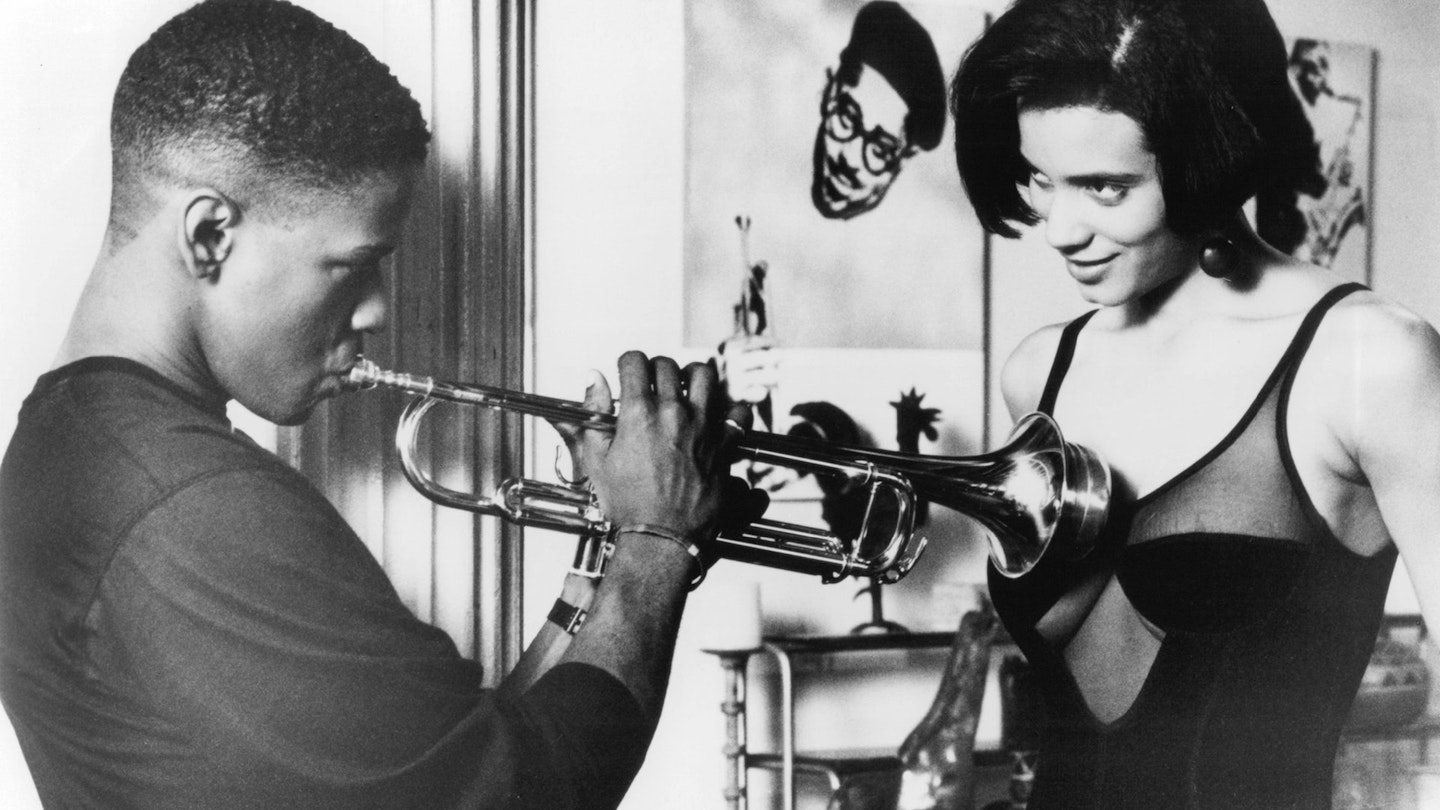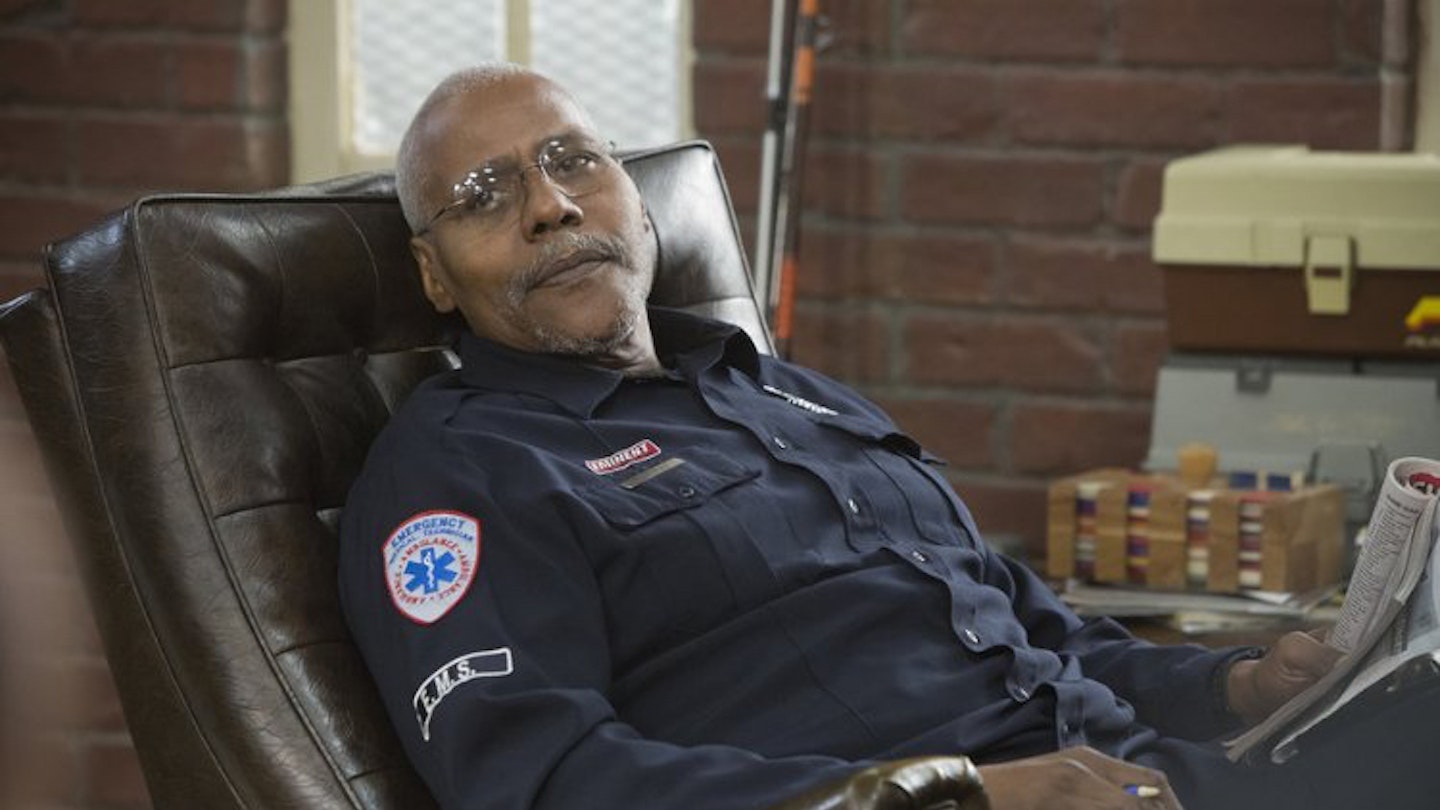Spike Lee’s reaction to the instant critical cliché that he was “the black Woody Allen” was a barbed quip to the effect that his ambition is to be “the first black actor to have a speaking part in a Woody Allen movie”. The comparison derived its legitimacy from the irrefutable fact that Allen and Lee are fast-talking bespectacled midgets from Brooklyn who also happen to be cinematic polymaths specialising in claustrophobic New York-based ensemble pieces performed by what are virtually repertory companies. Mo’ Better Blues is a much better movie than its press would suggest; and, like all Lee’s movies, it’s several films in one.
Among the many things it is: a jazz equivalent to Spinal Tap, with characterisations and dialogue which will draw a sympathetic wince from anybody who’s ever played in a band of any sort at any time; a study in the psychology of obsession, playing off Denzel Washington’s taut portrayal of the driven musician (trumpeter Bleek Gilliam, a parallel-world Wynton Marsalis) and Lee’s own personal acting best as the equally driven gambler Giant (climaxing, incidentally, in the most savage on-screen beating to which any actor/director has subjected himself in the three decades since Marlon Brando’s One-Eyed Jacks); an essay on sexual promiscuity which provides as perfect a profile of the insecurities driving male promiscuity as Tracy Camila Johns’ Nola darling in Lee’s first feature She’s Gotta Have It; a dissection of the relationship between black artists and Jewish entrepreneurs (itself an important subtext of both New York jazz and Lee’s own relationships with Hollywood); a philli-pic about the importance of the preservation of cultural traditions, and much, much more.
Like all Lee’s film, Mo’ Better Blues is a real ensemble piece, and the standard of the performances is uniformly excellent: but Washington, Lee himself and Joie Lee (whose wiry, big-eyed Simpson-haired Indigo is the guardian of the movie’s integrity) deserve extra plaudits. Spike Lee is the most genuinely stimulating and provocative film-maker around at the moment; Mo’ Better Blues is much mo’ better than its detractors might suggest. Incidentally, even if Woody Allen signed Lee up tomorrow, they’d already be too late, since a black actor had two whole lines in Love And Death. Make that “major speaking part,” Spike.

